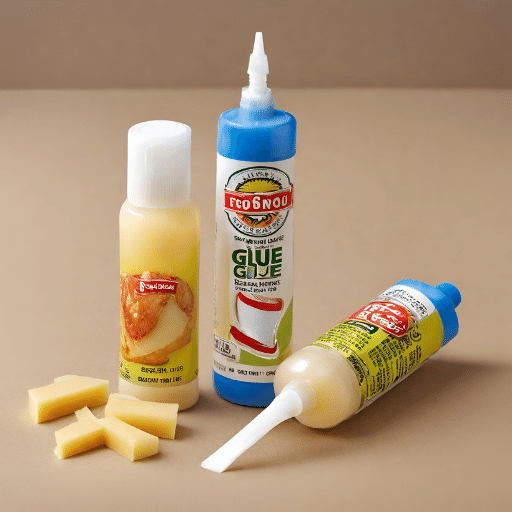Super glue, known for its incredible bonding power, is a common household item. However, when it comes to food safety, the question arises: is super glue food safe when dry? While super glue might seem like a quick fix for minor kitchen mishaps, it’s crucial to understand that it’s not designed for contact with food. This article will delve into the potential health risks associated with using super glue on food-related items and explore safer alternatives.
We’ll examine the composition of super glue, discuss the dangers of ingesting even dried super glue, and highlight the importance of choosing food-grade adhesives for culinary applications. By understanding these risks, you can make informed decisions about what products are safe to use in your kitchen.
Super Glue Safety
Super glue, also known as cyanoacrylate adhesive, is a powerful bonding agent that works by rapidly forming strong chemical bonds between surfaces. This process involves a reaction with moisture, which causes the glue to harden and create a durable bond. While super glue is effective for many household repairs, it’s essential to remember that it’s not intended for use on items that come into contact with food.
The primary concern with using super glue on food-related items stems from its chemical composition. Super glue contains cyanoacrylate monomers, which are known to be potentially harmful if ingested. These monomers can cause irritation and allergic reactions in some individuals. Additionally, the manufacturing process of super glue may involve the use of other chemicals that could pose health risks.
Health Risks of Ingestion
Even though super glue dries hard, it doesn’t become completely inert. Dried super glue can still release small amounts of cyanoacrylate monomers over time, posing a potential risk if ingested. The severity of these risks depends on the amount ingested and individual sensitivity.
Ingesting even small amounts of dried super glue can lead to symptoms such as nausea, vomiting, diarrhea, abdominal pain, and irritation of the mouth, throat, and digestive tract. In severe cases, ingestion of large quantities of super glue can result in more serious complications, including respiratory distress, seizures, and coma. It’s crucial to seek immediate medical attention if you suspect that someone has ingested super glue.
Food-Grade Adhesives
Fortunately, there are safer alternatives available for bonding food-related items. Food-grade adhesives are specifically formulated for use with food and are designed to be non-toxic and safe for consumption. These adhesives undergo rigorous testing to ensure they meet strict safety standards.
Food-grade adhesives come in various forms, including glues, pastes, and tapes. They are commonly used in the food industry for packaging, labeling, and repairing equipment. When choosing a food-grade adhesive, always look for products that have been certified by reputable organizations such as the FDA or NSF International.
Alternatives to Super Glue
Beyond food-grade adhesives, there are several other safe and effective alternatives to super glue for common household repairs:
Household Staples
- Tape: Masking tape, duct tape, and packing tape can be used for a variety of repairs, from securing loose packaging to temporarily fixing broken items.
- Rubber Bands: These versatile tools can be used to hold things together, create makeshift slings, or even secure small packages.
Specialized Options
- Epoxy Resin: This strong adhesive is ideal for bonding wood, metal, and other materials that require a durable and waterproof seal.
- Hot Glue Gun: Hot glue guns use melted thermoplastic to create a quick and easy bond. While not as strong as epoxy resin, hot glue is suitable for many light-duty repairs.
Conclusion
While super glue’s bonding power might be tempting for quick fixes, it’s crucial to prioritize safety when it comes to food contact. Is super glue food safe when dry? The answer is a resounding no. Even dried super glue can release harmful chemicals that pose health risks if ingested. Always opt for food-grade adhesives or explore safer alternatives like tape, rubber bands, epoxy resin, or hot glue guns for your culinary needs. Remember, your health and well-being are paramount, so make informed choices about the products you use in your kitchen.



